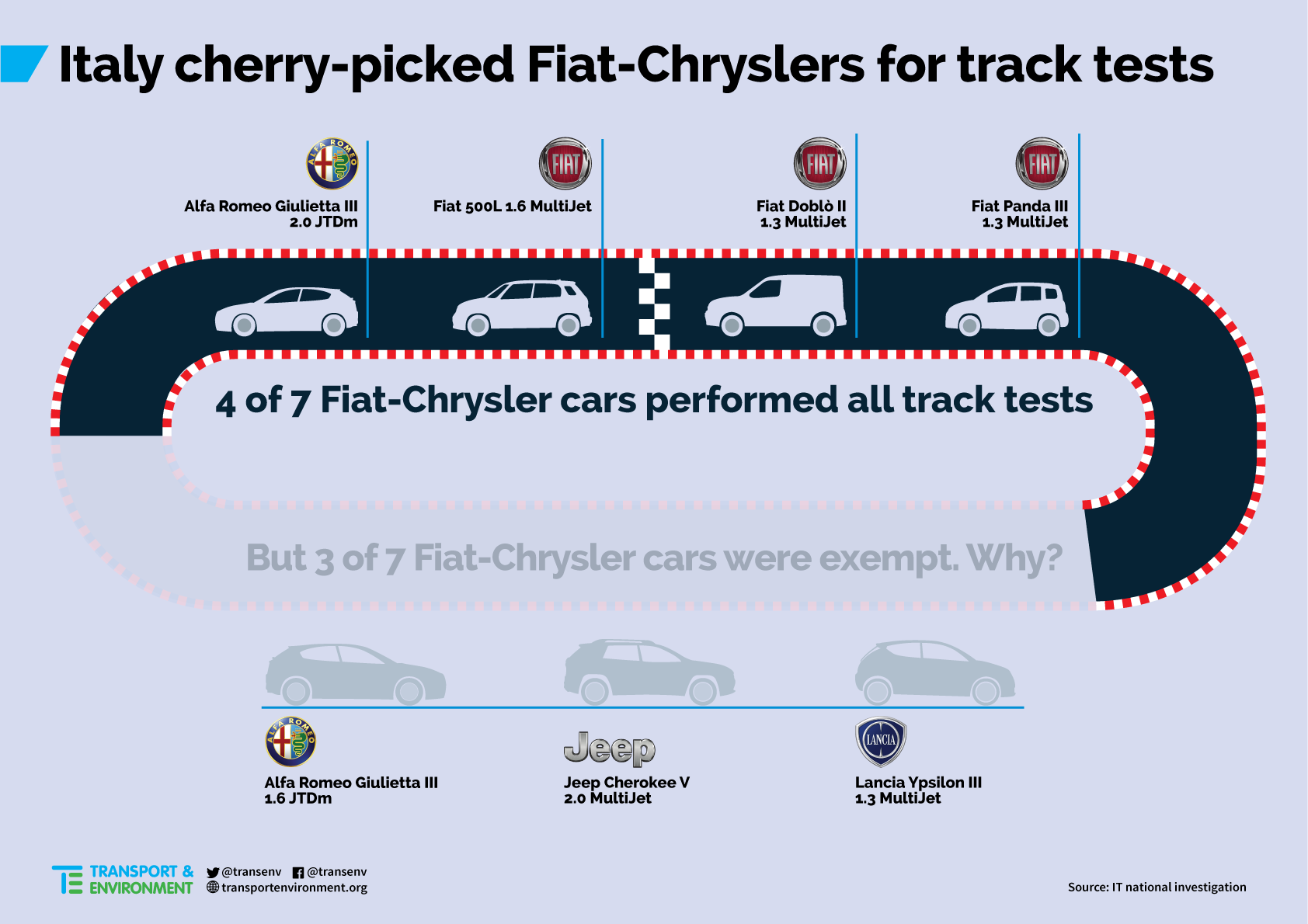
Interested in this kind of news?
Receive them directly in your inbox. Delivered once a week.
Without explanation, three of the Fiat vehicles were not tested on the company’s outside track using PEMS, the test that comes closest to mirroring the real-world driving conditions. The same three models also escaped being tested on a demanding hot cycle, which is designed to screen for illegal defeat devices like the one Volkswagen was caught using to cheat emissions tests. These three engines fared very badly in the earlier investigations by German and French authorities.
Julia Poliscanova, clean vehicles manager at sustainable transport group Transport & Environment (T&E), said: “This report points to collusion, showing what is going to happen if type approval rules are not tightened up and all enforcement continues to sit with national authorities. Europe needs to urgently revamp the way cars are approved for use to finally inject independence and transparency into the current system, which is paralysed by regulatory capture.”
The accuracy of the emission measurements for the other manufacturers was undermined by the track being too short. Therefore the tests stopped after 17 minutes instead of the EU protocol of 20 minutes. As a result, investigators also cut short the Fiat cars’ tests. Thus it was impossible to establish whether illegal defeat devices that disable pollution control after 22 minutes were used.
This Thursday the European Parliament’s internal market committee will vote on reform of the EU’s type approval and testing regime. National experts from the 28 EU countries also met this week to discuss the Council’s position.
Julia Poliscanova continued: “Strong EU authority to check both cars and national authorities should be the basis for the reforms being discussed by MEPs. The Italian report is clear proof that the government put the interests of its home champion above that of public health and its citizens.”
Fiat Chrysler is being investigated in the US for deploying illegal defeat devices resulting in high NOx emissions on the road. Similar concerns have been raised by the German authority (KBA) for more six months, since it revealed that its tests showed some Fiat models switching down emission controls after 22 minutes – just after the test had finished. Yet no action against Fiat has been taken as the Italian authorities in charge continue to defend the carmaker rubberstamping its emission results instead of proper scrutiny.


